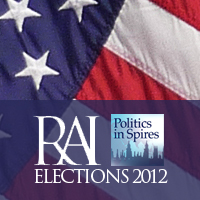
US Elections 2012
Hosted by Oxford’s Rothermere American Institute and the Politics Departments at Oxford and Cambridge universities, Elections 2012 is a forum for academic discussion and debate surrounding the US Presidential, Congressional and local elections. The forum brings together scholars from a range of different fields — including political science, history, law and literature – to supplement the horse-race coverage provided by political journalism and showcase academic research.
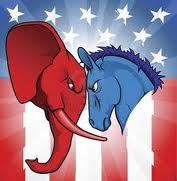
Targeting and Turnout in the 2012 US Presidential Election
One of the big questions in the run-up to the 2012 Presidential Election was what the turnout would be. Would the supposed “enthusiasm gap” lead to lower turnout amongst some of the key demographics behind Obama’s 2008 victory, like African-Americans and college students? Would the absence of the extraordinary volunteer mobilization seen around the Presidents’ first campaign leave his re-election effort without the capacity to expand the electorate through large-scale voter registration efforts and an extensive and intense effort to get out the vote?
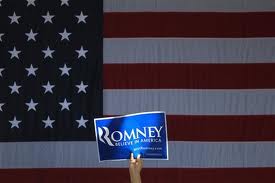
US Republicans: The election postmortem should recognise that change is finally something to embrace
Barack Obama won re-election, his party managed to hold the Senate, and the House of Representatives is still – exactly as before the elections – dominated by the Republicans. Licking their wounds, they remain hostile to presidential administration. Has anything shifted? More than it seems. Certainly there is scope for a number of changes on the horizon – the most important ones concerning the American right.

The Money Trail: TV adverts are the most costly, but campaigns still spend big on old fashioned buttons and yard signs
From the coverage of the US election in the UK news media it would be easy to get the impression that we are witnessing a single battle of giants, or a least of the giantly funded. In mid-October the Center for Responsive Politics reported that the campaigns of Mitt Romney and Barack Obama had raised almost $900 million combined. But the presidential election is not the only place where money talks loudly.
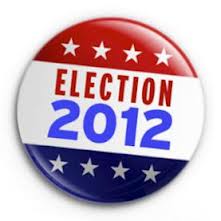
All to Play for in the Home Stretch
It’s a little over three weeks to go before America votes in the 2012 presidential election, and things have suddenly turned interesting. For a while, orthodoxy was that Obama was likely to get re-elected and, maybe, by a substantial margin. As late as early October, Romney was still seen as a weak candidate with a history of vote losing gaffes. Those of us who thought the GOP might win the White House were treated like Right-wing Cassandras. It seemed like the European Union was more likely to win a Nobel Peace Prize…
Suddenly, the national polls are even and the swing states are getting close. At this dramatic point in the race, I’d make the following observations…

Only 22% of Americans think they are in the 47%
When Mitt Romney’s 47% comments came to light, many were surprised that Romney’s claim that 47% of households do not pay income taxes is, in fact, true.
To many people, this is outrageous. Why should they be paying the federal taxes they do while so many fellow citizens get a free ride?

Does the Republican Party actually know who votes for them?
You would think that the US presidential campaign teams would have a pretty good idea of what sort of person is likely to vote for them. A recent book suggest that the Democrats have developed highly complex ways of figuring this out. On the other hand, given two recent events, I’m not sure the Republicans have any idea.
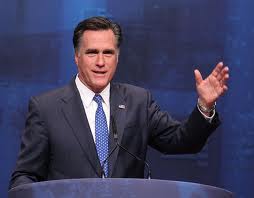
Romney’s 47% and What it Reveals About the American Right
Aside from cementing Obama’s tenuous lead (Silver now puts Obama’s chances at above 80%), Mitt Romney’s ‘47% gaffe’ also proved unexpectedly useful, if vexing, for conservatives.
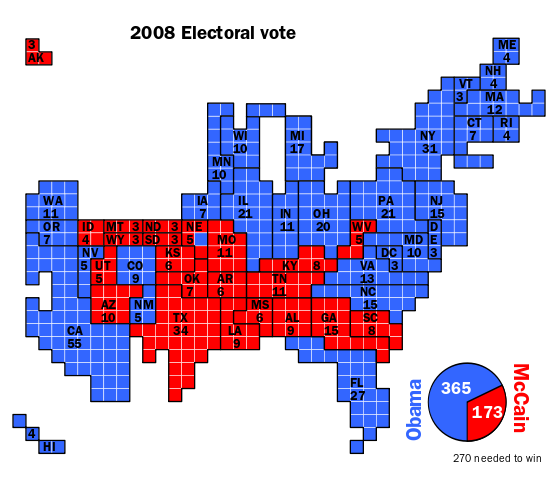
The Electoral College: Debunking myths used in its defence
Many people know that it is electors in the electoral college that actually elect the president, not citizens voting on election day. They also may know that this system allows the candidate coming in second to win the election, as occurred in 2000, and thus violates the democratic norm of equality in voting. But more puzzling (and less reliable) are the arguments made on behalf of the electoral college. Here are four of the most common — and why they are wrong. 1. The electoral college protects the interests of small states The core justification is that it balances local and national interests, protecting small states from majority rule. Yet states with small populations do not have common interests to protect and …









